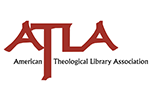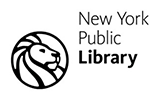Circulation Policies
Circulation
To find materials, patrons first consult the online catalog for the call number and location of the book. The standard book loan period for resident students is six weeks. The loan period for faculty is by semester. All loans are subject to recall on notice.
Lending chart
The Father Georges Florovsky Library lending chart is available here.
Inter-Library Loan
Students can find a link to ILL on the library’s homepage. They are able to place their own requests by using the WorldCat search engine crafted specifically for the seminary. The librarian will then approve their requests on OCLC and monitor the transit and delivery of materials. The seminary does not loan materials, due to its staff size.
Materials limit
Students are limited to checking out fifty books at any one time. All books from the stacks must be checked out at the circulation desk or kiosk before leaving the library.
Periodicals
We encourage patrons to make use of the ATLA Religion Database for browsing periodicals or finding articles.
Reserve shelf
At the request of individual instructors, materials needed for class assignments are removed from regular circulation and placed on reserve (restricted use). Reserve circulation is normally for four hours. Reserve shelf materials cannot be renewed and cannot be placed on hold.
Reference collection
"REF" indicates reference materials and these are located in the reading room. They do not circulate. They are meant to be accessible to all and are not allowed on study carrels.
Rare books
The rare books section is located in the stacks, which is secured by an access code. It is split into two sections: over-sized volumes and regular books. The rare books do not circulate; patrons must make an appointment at the circulation desk to view a rare book.
Fines
Fines will accrue per day after the due date (see the lending chart for more details). Fines are payable only to the librarian. Fines not paid at semester's end must be paid before or by the beginning of the following semester to reinstate circulation privileges.
Renewing and returning books
All materials should be returned on time to the circulation desk during staffed hours or in the book drop when the reading room is open. Patrons are encouraged to manage their books by logging into personal accounts on Bibliovation. By logging into their accounts, patrons can request books, place holds, and renew items.
Other Policies within Circulation
Quiet Policy
Given the limited space in the library for study, there is a mandated quiet policy for all floors. Students are not allowed to hold conversations or speak loudly. However, when The Lyceum room is not in use, it may be checked out as a group study room for projects that require collaboration. The volume in this room is expected to be at a conversational level. Groups that cannot work quietly will be asked to leave the room.
Reserve bins and carrels
Th.M. students are given priority when it comes to reserve bins and carrels; they need the space to write their master’s thesis. However, students may use unoccupied carrels on a first-come, first-served basis. Carrels unattended for more than 15 minutes will have its items removed. The librarian and respective student workers will ensure that this procedure is carried out effectively.
Special collections
Students and faculty that wish to access archival materials for research purposes must set up an appointment. When making the appointment, the patron must ask for specific materials to be withdrawn. Bags, food, or drink are not allowed while viewing archival materials; the patron may have a folder or notebook and a pencil.
Group study rooms
Group study rooms may be checked out for groups of three or more students, and only if there are no Lyceum events. The checkout time for a group study room is a 4 hour reserve; the reserve cannot be renewed if there is another group waiting for the room.
External and visiting scholars
Those researchers from outside the institution who wish to access the library’s special collections and other resources must contact the head librarian. The library may be able to scan certain parts of the collection for researchers working remotely, but it cannot devote a large amount of time to any one request, nor can it bypass standard copyright laws. For in-person use of the collection, the librarian can arrange an appointment at the special collections reading room or facilitate on-campus use of the stacks and electronic resources. On campus, visitors have access to ATLA and JSTOR.




